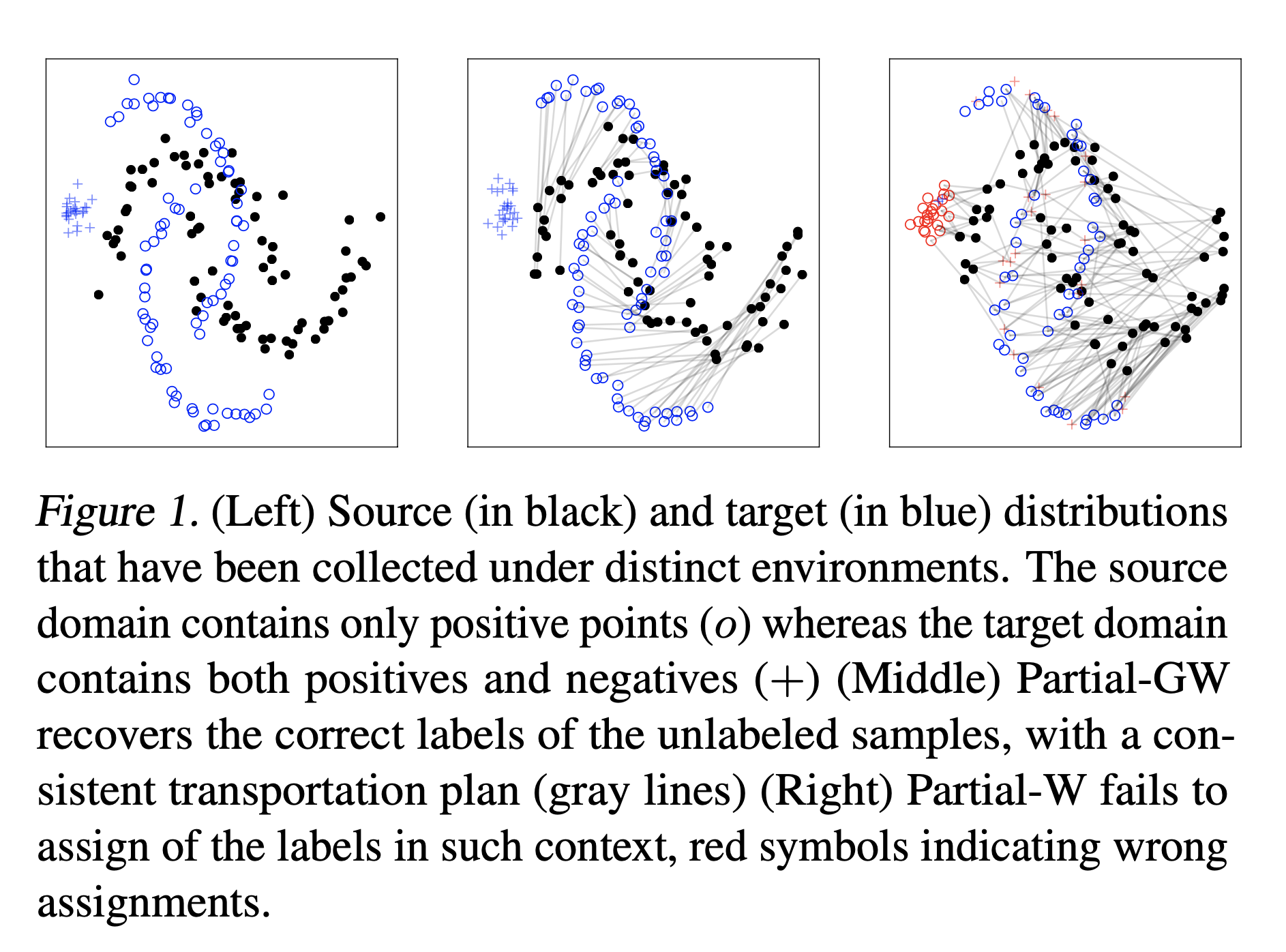Partial Gromov-Wasserstein with Applications on Positive-Unlabeled Learning
Published in Proceedings Conference NeurIPS, 2020
L. Chapel, M. Z. Alaya, G. Gasso
Classical optimal transport problem seeks a transportation map that preserves the total mass between two probability distributions, requiring their masses to be equal. This may be too restrictive in some applications such as color or shape matching, since the distributions may have arbitrary masses and/or only a fraction of the total mass has to be transported.
In this paper, we address the partial Wasserstein and Gromov-Wasserstein problems and propose exact algorithms to solve them. We showcase the new formulation in a positive-unlabeled (PU) learning application. To the best of our knowledge, this is the first application of optimal transport in this context and we first highlight that partial Wasserstein-based metrics prove effective in usual PU learning settings. We then demonstrate that partial Gromov-Wasserstein metrics are efficient in scenarii in which the samples from the positive and the unlabeled datasets come from different domains or have different features. ![]() Download paper here
Download paper here

